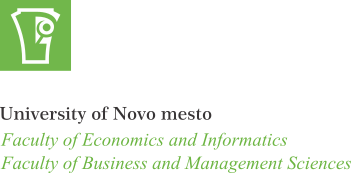Anglicisms in the Business Nomenclature of Tourist Companies in Slovenia
Keywords:
name, company, anglicisms, sociolinguistic analysis, SloveniaAbstract
The name of a company is one of the most important factors for a successful business. Nowadays, the supremacy of English in the business nomenclature worldwide indicates the ambition for global orientation, the desire for attracting young customers of various native tongues, and creating a marketing advantage of companies. On the one hand, the pressure to use as many anglicisms as possible has been increasing, and on the other hand, their use is prohibited in Slovenia; therefore, the question arises as to how anglicisms are manifested in Slovenian business naming practices. The aim of this sociolinguistic study was to investigate the use of anglicisms in the business nomenclature of tourist companies in Central Slovenia. According to the results, among 3,309 examples of tourist business names anglicisms accounted for 5.23%, despite the fact that non-Slovenian business naming is prohibited under both the Public Use of the Slovene Language Act and the Companies Act. The study has also revealed quite high occurrence of overly innovative and erroneous examples of anglicisms in business names with low meaningful creativity, signifying that in Slovenian business naming practice creating a global and foreign illusory impression may be more important than a truly clear business name.
References
Bhatia, T. K. (1992). Discourse functions and pragmatics of mixing: advertising across cultures. World Englishes, 11, No. 2, pp. 195–215.
Bhatia, T. K. and Ritchie, W. C. (2004). Bilingualism in the media and advertising. In: Bhatia, T. K. and Ritchie, W. C. (eds.). The Handbook of Bilingualism. Malden: Blackwell, pp. 513–145.
Charmasson, H. (1988). The Name Is the Game: How to Name a Company or Product. Homewood, IL: Dow Jones-Irwin.
Dimova, S. (2008). English in Macedonian commercial nomenclature. World Englishes, 27, No. 1, pp. 83–100.
Dobrovoljc, H. in Bizjak Končar, A. (2010). Proces podomačevanja in vprašanje pisanja novejših
prevzetih besed. Jezikoslovni zapiski, 16, št. 2, str. 91–110.
Einbeck, K. (2004). Mixed messages: English in German advertising. Journal of Language for International Business, 15, No. 1, pp. 41–61.
Fox, R. (2011). Naming an organization: a (socio) linguistic perspective. Corporate Communications: An International Journal, 16, No. 1, pp. 65–80.
Friedrich, P. (2000). English in Brazil: functions and attitudes. World Englishes, 19, No. 2, pp. 215–23.
Friedrich, P. (2002). English in advertising and brand naming: sociolinguistic considerations and the case of Brazil. English Today, 18, No. 3, pp. 21–8.
Gliha-Komac, N., Klemenčič, S., Ledinek, N. in Kozina, J. (2016). Jezikovna krajina v republiki Sloveniji in določbe veljavne zakonske ureditve: raba slovenščine pri izbiri firm oz. imen pravnih oseb zasebnega prava ter fizičnih oseb, ki opravljajo registracijo dejavnosti (sociolingvistični vidik). Jezikovni zapisi, 22, št. 1, str. 7–21.
Griffin, J. (1997). Global English invades Poland. English Today, 13, No. 2, pp. 34–41.
Griffin, J. (2001). Global English infiltrates Bulgaria. English Today, 17, No. 4, pp. 54–60.
Hasan, N. H., Kum Yoke, C. S. and Jangha, R. (2015). A Multifactorial Sociolingustic Analysis of SME Business Company Naming in Malaysia. Procedia Economiss and Finance 31, pp. 228–236.
Kamisah, A. and Misyana Susanti, H. (2013). Patterns of Language use in shop signs in Malaysian towns. Journal of Arts, Science & Commerce, 4, No. 3, pp. 12–21.
Kalin Golob, M. (2001). Med angleščino in slovenščino: prevzemanje in pomenski premiki, Družboslovne razprave, 17, št. 2, str. 235−240.
Lee, J. S. (2006). Linguistic constructions of modernity: English mixing in Korean television commercials. Language in Society, 35, No. 1, pp. 59–91.
MacGregor, L. (2003). The language of shop signs in Tokyo. English Today, 19, No. 1, pp. 18–23.
Martin, E. (2002) Mixing English in French advertising. World Englishes, 21, No. 3, pp. 375–411.
Nickerson, C. (2005). English as a lingua franca in international business contexts. English for Specific Purposes, 24, No. 4, pp. 367–80.
Oikonomidis, A. (2003) The impact of English in Greece. English Today, 19, No. 2, pp. 55–61.
Onysko, A. (2007). Anglicisms in German: borrowing, lexical productivity, and written codeswitching, Berlin – New York: Walter de Gruyter.
Piller, I. (2003). Identity construction in multilingual advertising. Language in Society, 30, No. 2, pp. 153–186.
Schlick, M. (2002). The English of shop signs in Europe. English Today, 18, No. 2, pp. 3–7.
Ustinova, I. P. (2006). English and emerging advertising in Russia. World Englishes, 25, No. 2, pp. 267–77.
Slovenska turistična organizacija: Pregled leta 2016 (2017). Pridobljeno dne 19. 6. 2017 s
svetovnega spleta: https://www.slovenia.info/uploads/dokumenti/dokumenti/raziskave/slo_2016_-_final_data.jpg.
Starc, J. (2010a). Notranje zagotavljanje kakovosti v visokošolskih organizacijah. Pedagoška obzorja, 25, št. 1, str. 76–88.
Starc, J. (2010b). Evalvacija kakovosti organizacije ter izvedbe izobraževanja in usposabljanja menedžerjev. Pedagoška obzorja, 25, št. 2, str. 110–122.
Starc, J. (2015). Kakovost delovanja visokošolskih zavodov se odraža v njihovem energijskem naboju. Pedagoška obzorja, 30, št. 3/4, str. 136–152.
Starc, J. in Blažič, M. (2008). Content needs assessment in training and education of management. Pedagoška obzorja, 23, št. 2, str. 24–41.
Stramljič, I. (2010). Tvorjenke slovenskega jezika med slovarjem in besedilom. Maribor: Zora. Pridobljeno dne 22. 8. 2017 s svetovnega spleta: http://centerslo.si/wpcontent/uploads/2015/10/32-Zele.pdf.
Šabec, N. (2009). Recent English loanwords in Slovene. ELOPE: English language overseas
perspectives and enquiries, 6, No. 1/2, pp. 19–27.
Özbal, G., Strapparava, C. and Guerini, M. (2012). Brand Pitt: A Corpus to Explore the Art of Naming. LREC, 1822-1828. Pridobljeno dne 18. 6. 2017 s svetovnega spleta: http://www.lrecconf.org/proceedings/lrec2012/pdf/679_Paper.pdf.
Zakon o gospodarskih družbah, Uradni list RS, št. 42/2006, 60/2006, 26/2007, 33/2007, 67/2007, 100/2007, 10/2008, 68/2008, 42/2009, 65/2009, 3/2011, 91/2011, 32/2012, 57/2012, 82/2013.
Zakon o javni rabi slovenščine. Uradni list Republike Slovenije, št. 86/2004, 8/2010.
Wildgen, W. (2010). Die Sprachwissenschaft des 20. Jahrhundert. Berlin: De Gruyer
Downloads
Published
How to Cite
Issue
Section
License
Copyright (c) 2022 Journal of Economic and Business Sciences

This work is licensed under a Creative Commons Attribution 4.0 International License.




